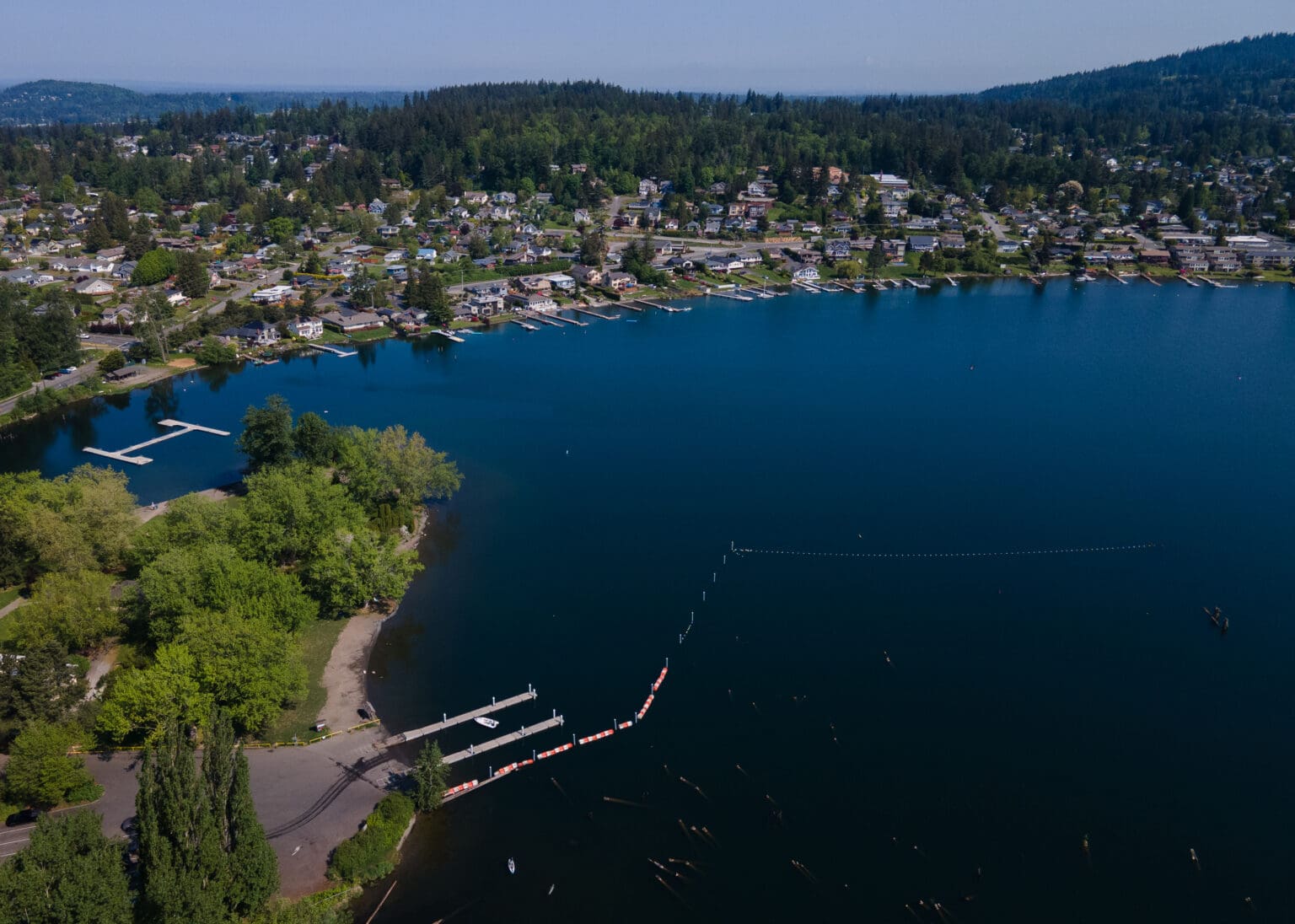Bellingham City Council members approved stricter stormwater regulations in the Lake Whatcom watershed this month, but opted against lowering the housing density zoning for multifamily residential areas in Silver Beach — at least for now.
The council held a public hearing to make a final decision on both the rezoning and stormwater regulations, but decided to pause on the rezone due to council members’ reservations about the measure. The Bellingham Planning Commission did not make a recommendation to the city council because the group also had reservations and commissioners were unable to reach a consensus on the rezone.
“I’m not hearing any alternatives, I’m hearing ‘build, baby, build’ because we have a housing crisis, and I don’t think our watershed should be sacrificed for our housing crisis,” city planning commissioner Barbara Plaskett said during an April 11 meeting, summing up the concerns shared by residents who gave comment at two planning commission meetings in March and April.
Bellingham planners’ proposal had called for a rezone in three multifamily areas along the lake from a “high density” designation to “medium density,” which would eliminate the potential for hundreds of new units in the watershed of the city’s drinking water source. At the same time, any new development or redevelopment of multifamily properties would trigger stormwater management measures across the entire site, which could reduce phosphorus loading into the lake.
After listening to more than an hour of public testimony on May 20, the council members agreed that they wanted more discussion on the topic before making a decision.
The council did vote in favor of increased stormwater regulations.
“That sets the bar that we’re now aiming for,” council member Michael Lilliquist said about the regulations. “Right now, only some properties have to jump over that bar and others don’t. Let’s set that same bar for everyone. Let’s take a step toward Lake Whatcom protection, pass the stormwater regulations, then come back and address the issue of stormwater retrofitting and also not get entangled and distort our zoning decisions based on our concerns for water quality.”
Lake Whatcom is on Washington’s list of polluted water bodies because of its high levels of phosphorus and dissolved oxygen. A development moratorium on multi-family areas along the lake within Bellingham city limits has been in place since July 2022, when the city council asked planning officials to introduce new regulations that would protect the watershed. The moratorium will expire in July 2024 unless the council votes again to extend it.
Bellingham city planners see the rezone proposal paired with stormwater management requirements as a way to move the city closer to its phosphorus reduction targets. But, Senior Planner Steve Sundin explained, because retrofitting storm drains on multifamily properties could cost those property owners up to $1 million, the city wouldn’t require it except in the case of new development or significant redevelopment. And planners aren’t recommending a lower density than “medium” because the demand for housing has only increased in recent years, and if the zoning was set at the lowest density, some of the parcels in the zone would already be fully built out.
Council member Hollie Huthman said she wasn’t ready to vote on the issue and wanted more information from city staff about the proposal. “We are being presented with two less-than-ideal options with the choice between low density and medium density.”
Some Silver Beach residents feel that other solutions should be considered.
“We’ve requested that the city finds ways to offset the cost of retrofitting storm drains for property owners,” Silver Beach Neighborhood Association president Kerri Burnside said. “It’s our water, it’s the drinking water for over 100,000 people. This is one where the city should take the time to pursue any option.”
Burnside believes the best outcome is for the city council to extend the moratorium again, make retrofitted storm drains mandatory for all properties in Silver Beach, and pursue funding from the state or federal government.
Council member Lisa Anderson said she was interested in exploring retrofitting existing systems.
“I would want to send that on to a work session to really dive into some of these potentials of how can we address some of the questions we had,” Anderson said. “What kind of money is out there? What kind of partnerships could we create? That type of information will come within that stormwater ordinance.”
The council will hold a public hearing on June 3 to hear feedback on extending the existing moratorium for an additional six months on the acceptance or processing of new development in Silver Beach. More information can be found here.
Julia Tellman writes about civic issues and anything else that happens to cross her desk; contact her at juliatellman@cascadiadaily.com.




